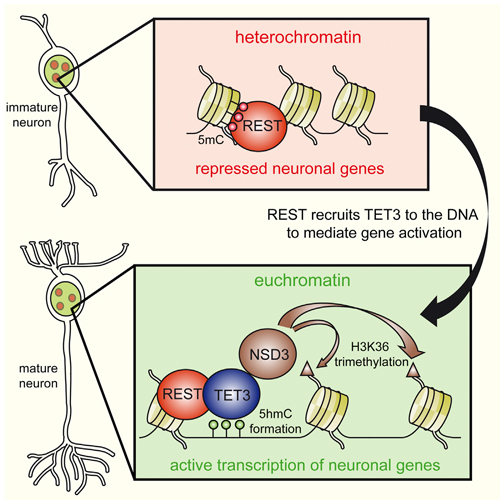TET3 Is Recruited by REST for Context-Specific Hydroxymethylation and Induction of Gene Expression
14-Apr-2015
Cell Reports, 2015, http://dx.doi.org/10.1016/j.celrep.2015.03.020, 11, 1–12 published on 14.04.2015
Cell Reports, online article
Cell Reports, online article
Ten-eleven translocation hydroxylases (TET1-3) oxidize 5-methylcytosine (5mC) to 5-hydroxymethylcytosine (5hmC). In neurons, increased 5hmC levels within gene bodies correlate positively with gene expression. The mechanisms controlling TET activity and 5hmC levels are poorly understood. In particular, it is not known how the neuronal TET3 isoform lacking a DNA-binding domain is targeted to the DNA. To identify factors binding to TET3, we screened for proteins that co-precipitate with TET3 from mouse retina and identified the transcriptional repressor REST as a highly enriched TET3-specific interactor. REST was able to enhance TET3 hydroxylase activity after co-expression and overexpression of TET3-activated transcription of REST target genes. Moreover, we found that TET3 also interacts with NSD3 and two other H3K36 methyltransferases and is able to induce H3K36 trimethylation. We propose a mechanism for transcriptional activation in neurons that involves REST-guided targeting of TET3 to the DNA for directed 5hmC generation and NSD3-mediated H3K36 trimethylation.











